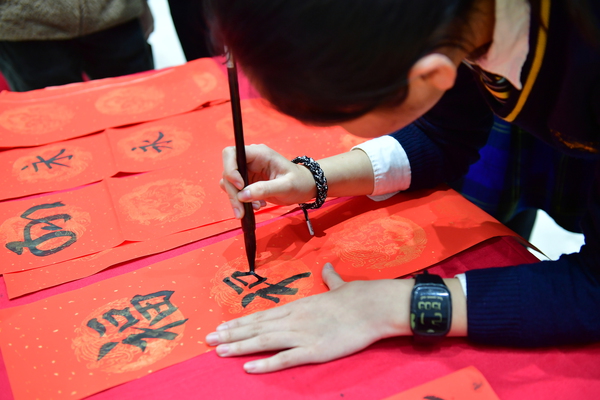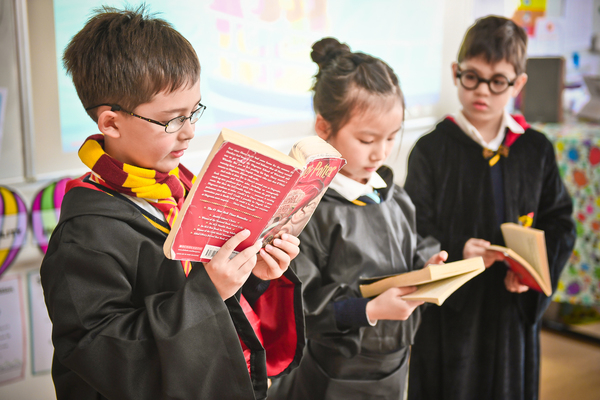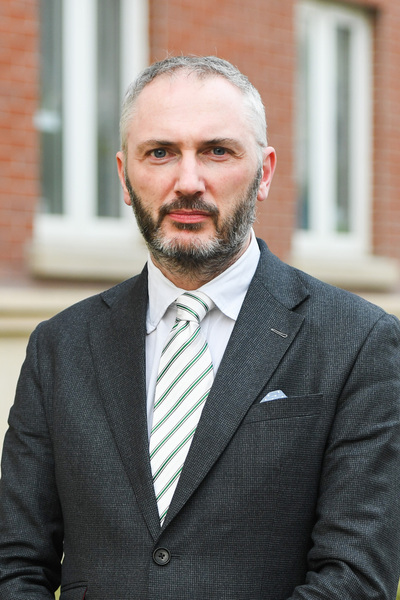Insights | Understanding and mastering the power of language
Interview of the Head of the WellingtonCollege

Wellington is already a language-rich environment, because like all international schools we have people speaking a wide range of different languages. However, it’s clear to me that as a school we are becoming more consciously aware of our ability to encourage the understanding and exploration of language itself. A recent piece of evidence of this would be the incredibly detailed language survey which drilled down into the remarkably complex linguistic backgrounds of Wellington’s pupils.
It’s this richness of language and expression that our pupils of all backgrounds are bringing into Wellington and it is something I feel very strongly that we must continue to encourage and reinforce as much as possible. Our style of teaching and learning becomes so much more effective and enjoyable when we move beyond simplistic one-word answers, where language is very restrictive and ‘played safe’, to a place where words and ideas are shared around, played with, experimented and expanded upon freely.
This applies to every Wellington pupil: whether English is your first language or not, whether you are fortunate enough to speak several languages fluently, there is always more to learn. There are always more words and shades of meaning and possibilities that could allow us to communicate with greater style, confidence and nuance. I’m not talking about simply swallowing a thesaurus and rattling off a long list of lengthy words either; being able to choose the right words is about more than just having a large vocabulary.
- It’s also about sensitivity to your audience, whether that’s one person or a thousand. Finding those words that will most powerfully connect with an audience only comes with practice and a little bit of risk-taking.
This is a concept that I feel our pupils inherently understand and something that we are getting consciously better at encouraging throughout the Education via school. It’s partly in Wellington’s DNA: we’re inclusive and international, ‘linguistic’ is one of our aptitudes; our whole philosophy of education is very fertile soil for sharing language. However, it’s also something that I think we are all able to actively encourage through a variety of means.
Reading

source : https://www.wellingtoncollege.cn/shanghai/academic/curriculum/prep-school/
Primary School is the Key
One key way to share language is to promote the sense of Wellington being a ‘reading school’, that is, a place where reading is always encouraged and shared between pupils and teachers, in and out of class. Helping all pupils gain a deep, disciplined reading habit doesn’t just mean that they read literary classics; (though there’s a significant place for that of course… I’d be a strange kind of English teacher if I didn’t think such books were valuable!) it means engaging with language in whatever form excites their imagination and sparks a desire to explore and understand.
Being Lost in a Book
Whether it’s science or philosophy, a Jane Austen novel or an online article on breakthrough technologies, the inherent value of reading is in the act itself, not in the book, magazine or digital content. It’s in the pleasure you gain from reading, the knowledge you gain, the ideas you formulate, the perspectives and minds you encounter that otherwise you are locked out of; these are the things that make reading so valuable and so inherently important. Being ‘lost in a book’ is one of the best ways to find the space we all need, from time to time, to step away from the world.
Learning
Wellington is, and must continue to be, a place where people value reading, learn from it and then share that learning. I want our classrooms to always be places of genuine, respectful and informed debate.
Having those kinds of debates, sharing that kind of knowledge, gaining that ability to ‘read’ the world, is essential in helping every Wellingtonian leave this school possessing that vital human spark necessary to successfully engage with other people, no matter what their chosen academic, professional or personal path in life.
Friends in China
It’s not how many Chinese friends you have on Facebook or in a WeChat group that makes the difference, it’s whether you can use the linguistic tools at your disposal to say something that is compelling enough for people to want to listen to.
I’d like to finish by sharing a bit of Chinese language that aptly summarises my thoughts on the subject. A favourite poem of mine is ‘V’, a lengthy work by a British poet, Tony Harrison. It opens with a quotation from Arthur Scargill, a trade union leader in the UK during the 1970s and 1980s, when I was growing up:
“I still read the dictionary every day. My father taught me that your power to live depends on your power to master words.”
I wouldn’t necessarily recommend the method, but his point still stands. We must always aim to increase our mastery of words, of Chinese language itself, so that we can gain a greater understanding of ourselves, our world and our place in it. This should be viewed as a lifelong process, kickstarted for our pupils during their school years so that they are as ready as possible for all the stories and discussion and debate that will make up their lives to come.
Joe McKee
Head of Senior School

